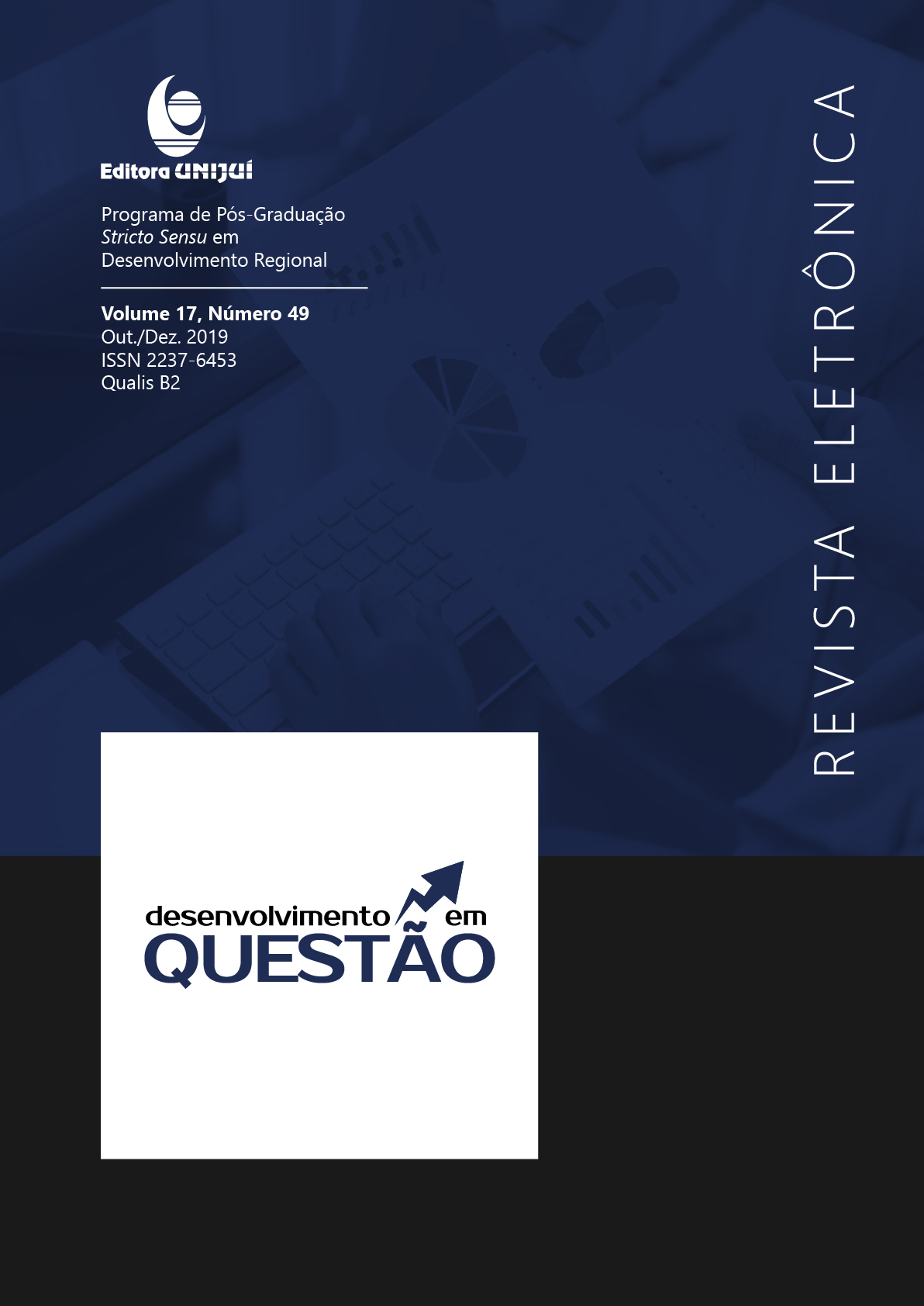Análise da Competitividade Internacional do Agronegócio Brasileiro no Período de 2003 a 2013
DOI :
https://doi.org/10.21527/2237-6453.2019.49.59-78Mots-clés :
Índices de Competitividade. Commodities. Exportações. Brasil.Résumé
Esta pesquisa busca analisar se o Brasil continua a possuir vantagem comparativa e competitividade no comércio internacional do agronegócio, no período de 2003 a 2013. Para isso foram analisadas as commodities negociadas na BM&F e as exportações aos Blocos Comerciais. Os dados foram calculados a partir dos diversos indicadores de comércio internacional do País, como os índices de Vantagem Comparativa Revelada (VCR), Vantagem Comparativa Revelada Simétrica (VCRS), Vantagem Relativa na Exportação (VRE) e Competitividade Revelada (CR). Também com o intuito de analisar o padrão de especialização através da vantagem comparativa foram calculados o Indicador de Contribuição ao Saldo Comercial (ICSC), o Índice de Concentração por Produtos das Exportações (ICP) e a Taxa de Cobertura (TC). Nos resultados, observou-se que o Brasil possui vantagem na exportação de praticamente todas as commodities analisadas, como o café, açúcar, carne de bovina e soja; e que suas competitividades estão em alta no comércio internacional. Em relação à competitividade no comércio, todos os produtos, exceto, o algodão e o milho, proporcionam saldos positivos na balança comercial da commodity.
Téléchargements
Publié-e
Comment citer
Numéro
Rubrique
Licence
Ao publicar na Revista Desenvolvimento em Questão, os autores concordam com os seguintes termos:
Os trabalhos seguem a licença Creative Commons Atribuição 4.0 Internacional (CC BY 4.0), que permite:
Compartilhar — copiar e redistribuir o material em qualquer meio ou formato;
Adaptar — remixar, transformar e criar a partir do material para qualquer fim, inclusive comercial.
Essas permissões são irrevogáveis, desde que respeitados os seguintes termos:
Atribuição — Atribuição — os autores devem ser devidamente creditados, com link para a licença e indicação de eventuais alterações realizadas.
Sem restrições adicionais — não podem ser aplicadas condições legais ou tecnológicas que restrinjam o uso permitido pela licença.
Avisos:
A licença não se aplica a elementos em domínio público ou cobertos por exceções legais.
A licença não garante todos os direitos necessários para usos específicos (ex.: direitos de imagem, privacidade ou morais).
A revista não se responsabiliza pelas opiniões expressas nos artigos, que são de exclusiva responsabilidade dos autores. O Editor, com o apoio do Comitê Editorial, reserva-se o direito de sugerir ou solicitar modificações quando necessário.
Somente serão aceitos artigos científicos originais, com resultados de pesquisas de interesse que não tenham sido publicados nem submetidos simultaneamente a outro periódico com o mesmo objetivo.
A menção a marcas comerciais ou produtos específicos destina-se apenas à identificação, sem qualquer vínculo promocional por parte dos autores ou da revista.
Contrato de Licença (para artigos publicados a partir de 2025): Os autores mantêm os direitos autorais sobre seu artigo, e concedem a Revista Desenvolvimento em Questão o direito de primeira publicação.











